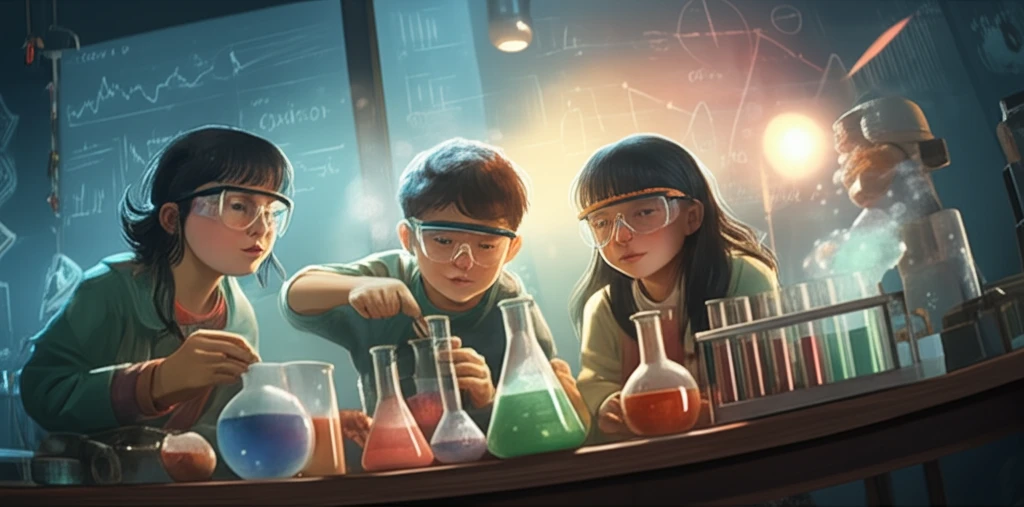
Unlock Your Child's Potential: How Multi-Cycle DEAL Transforms Science Learning
"Discover the innovative teaching model that's boosting science mastery in elementary schools and how you can use it."
In today's rapidly evolving world, a strong foundation in science is more critical than ever. From understanding the technology that shapes our lives to making informed decisions about our health and environment, scientific literacy is essential for success. However, many elementary school students struggle with science, finding it difficult to grasp complex concepts and apply them to real-world situations. Traditional teaching methods often fall short, leaving children feeling disengaged and unmotivated.
But what if there was a way to make science learning more effective, engaging, and enjoyable for young learners? Enter the Multi-Cycle DEAL teaching model, an innovative approach that's transforming science education in elementary schools. This model, which stands for Discussion, Exploration, Analysis, and Look-back, is designed to actively involve students in the learning process, fostering a deeper understanding of scientific concepts and improving their ability to solve problems and make informed decisions.
This article explores the Multi-Cycle DEAL teaching model, examining its key components, its effectiveness in improving science mastery, and how educators and parents can implement it to unlock their child's full potential. Get ready to discover a new approach to science education that empowers young learners and prepares them for a future driven by innovation and discovery.
What is the Multi-Cycle DEAL Teaching Model and Why Does It Work?

The Multi-Cycle DEAL teaching model is a structured approach to science education that emphasizes active learning and critical thinking. Unlike traditional methods that often rely on passive listening and rote memorization, DEAL encourages students to take an active role in their learning journey. Each stage of the model is carefully designed to build upon the previous one, creating a cohesive and engaging learning experience.
- Discussion: The learning process begins with a discussion of the problem or concept at hand. This allows students to share their existing knowledge, ask questions, and identify areas where they need more information.
- Exploration: Students then engage in hands-on activities, experiments, or research to gather information and explore the topic in more detail. This stage encourages curiosity and allows students to learn through direct experience.
- Analysis: Once students have gathered sufficient information, they analyze their findings, identify patterns, and draw conclusions. This stage develops critical thinking skills and helps students make sense of the information they have gathered.
- Look-back: In the final stage, students reflect on what they have learned, evaluate their understanding, and identify areas where they still need clarification. This stage reinforces learning and helps students develop metacognitive skills.
Empowering Future Scientists: The Lasting Impact of DEAL
The Multi-Cycle DEAL teaching model offers a promising approach to transforming science education in elementary schools. By actively engaging students, fostering critical thinking, and promoting collaboration, it empowers young learners to develop a deep understanding of science and a lifelong love of learning. As educators and parents, we have a responsibility to provide children with the best possible learning experiences. By embracing innovative approaches like Multi-Cycle DEAL, we can unlock their full potential and prepare them to become the scientists, innovators, and problem-solvers of tomorrow.
